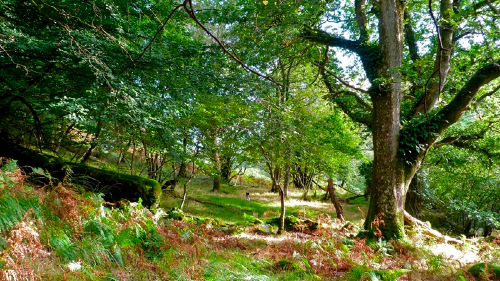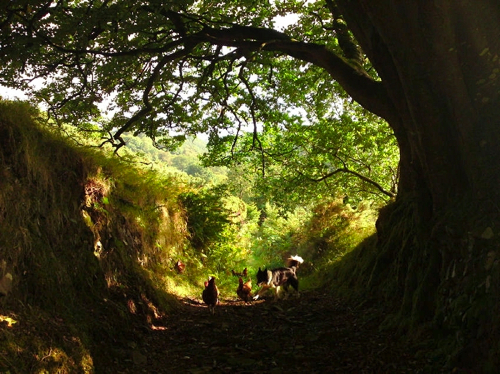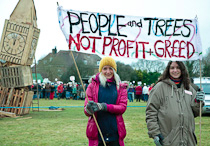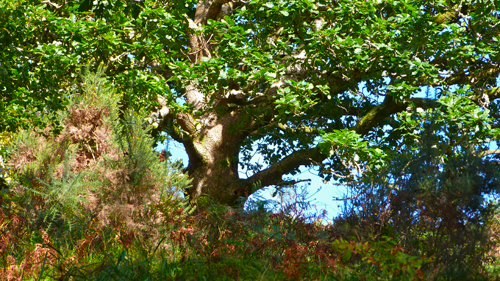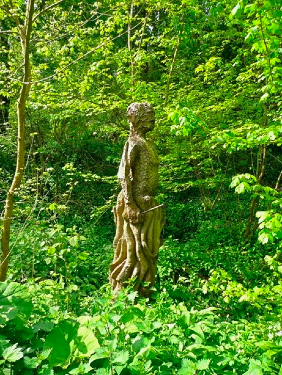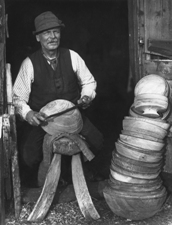by Rod Leslie
Behind the debate on ownership of our national forests, the money question has always been there. How much should the forests cost the public purse ?
There’s an assumption it should be nothing, break even where income matches expenditure. Obviously sensible for what is meant to be a business.
But is it ?
Breaking even would make the Forestry Commission’s forests unique in the countryside. Almost every square inch of the 70% of England’s countryside that is farmed, private, public, third sector, is currently paid public money – a whopping £200/ hectare per annum for lowland farmland. It is less for the uplands – but there is more money under higher & lower level stewardship for management for biodiversity and public access.
There is just one substantial part of the rural landscape that receives zero funding: the 500,000 hectares of unmanaged woodland.
Its hard to work out exactly what the national forests would cost were they eligible for this funding, but I’d estimate it would be around £40 million per annum – bear in mind, FC manages 50,000 hectares of SSSIs which would be a shoe in for HLS. That compares with a current annual cost of £20-25m.
The Government’s own Impact Assessment at the time of the sales policy supported this view: even at the much lower levels of forestry grants it showed the capital income from sales rapidly eaten up by grant payments to the new owners.
So why the problem ? A number of reasons:
The FC forests are a strange mix of business and public delivery. Government understands pure business – British Gas for example, and sells it. No big problem there. It understands public service delivery: departments are allocated money by the Treasury to deliver agreed programmes. Natural England is simple: money is allocated to deliver. The National Nature Reserves, for example, get about £9m per annum for management. But the FC does both at once, something the Government system has never been able to understand.
It gets worse. Spending Departments get given money which they spend – and get into trouble if they spend too much. Timber sales are FC’s biggest income earner and they fluctuate with world markets – in contrast to agricultural products where until recently the EU ‘fixed’ a minimum price (the single farm payment is the substitute for price support). Unfortunately, prices fluctuate wildly but with a steady downward trend. Over the last 30 years the real value of timber to the grower has gone down by 5 times. FC’s long standing cash crisis dates to 1996 when timber prices fell dramatically, ending up at only half their 1996 value. What that meant in England was an income that went from £38m pa to just £17.5m at its lowest point. Again, Government systems can’t cope with this – this sort of deficit anywhere else would be a failure of management, and so it has tended to be seen for FC.
So what has FC done about it ? There has been a lot of talk about FC being ‘more entrepreneurial’. I agree: the FC management team were always champing at the bit of Government brakes on enterprise which the status of a ‘public corporation’ would go a long way to solving (for example, being able to carry money between years and even borrow money.)
But what is absolutely and fundamentally wrong is the assumption behind this statement that FC has not been entrepreneurial. In fact it’s the opposite – FC has a lot to teach both Defra and wider Government about just how imaginative and effective a public sector body can be. As timber prices left ever bigger gaps in the accounts FC sought every opportunity to bring in more money. There was no fix for the world timber market, but there was a lot that could be done elsewhere. With no cash of its own, FC revitalised its recreation offer, building a string of new forest centres, becoming the home of mountain biking in England and spawning a string of successful private businesses based in the FC forests. It turned its Forest Centres from loss makers to income generators, a total of over £3m pa improvement in the accounts – and along the way generated dozens of new (mainly private sector)jobs.
It also revolutionised its biodiversity delivery with a string of major restoration projects ranging from the Border Mires on the Scottish Border to the New Forest on the south coast. Up until the SSSI challenge from 2004 almost all of this was not core Government funding, with the EU LIFE programme the main funder.
By 2005 25% of FC’s income was from ‘3rd party’ sources – roughly £15m pa, far more than either Natural England or the Environment Agency, organisations that dwarf FC in budget and staffing.
So what does all this mean ?
To me its quite simple.
FC has a business element – particularly growing and selling timber, but also providing services like recreation where it is reasonable for people to pay.
And it has a public service element – particularly it’s delivery for biodiversity and the more informal access and recreation where it is neither possible or appropriate to charge.
The first part should fund itself. Like any other public sector deliverer, and the private and third sectors delivering for society rather than private gain, the second element must surely be publicly funded ? It should not be difficult to work out the cost: grants from bodies like Natural England are the ‘benchmark’ so, for example, we know what annual management of a hectare of heathland costs. We also know that through scale, but also very efficient use of resources like labour and machinery, FC’s costs are almost invariably far lower than the ‘standard’ costs.
FC’s public service delivery should be quite simply contracted from Government: instead of all the silliness about break even and the confusion between business and public service delivery there needs to be a transparent payment by Government for the things that FC can never earn any money from – and I am confident that it will look like very good value for money compared to any comparable deliverer.
But what if this doesn’t happen ? FC resources will be cut and cut. Some people are probably hoping that will result in FC losing its popularity with the public. I don’t think that will happen for two reasons. First, voters aren’t nearly as stupid as politicians always assume. They will see exactly what is going on and lay the blame where it belongs, with Government Ministers. And that will ensure forestry is a very live issue at the next election.
Second, FC will respond. There’ll be all sorts of crackpot ideas about exploiting the estate – the sort of thing outside amateur managers have come up with time and time again – but the reality will be a reversion to core values and support – most obviously, with the conservation NGOs ensuring an estate more distant from government through their support for a Forest Services/ Natural England merger, will be membership of the new Forestry Commission. It will not just be about free access to charged recreation sites (the National Trust model) but also about saving our environment (the RSPB model) – appealing to the public to replace the money lost from Government cuts. The beauty is that as the cuts get larger and more obvious in terms of loss of services the strength of the appeal will ratchet up. At best (worst ?), it looks quite possible that FC could generate a membership worth £15m pa – which alongside gently rising timber values, supported by the demand for woodfuel, should come very close to floating a free standing, self financing organisation.
But I don’t think it should happen that way. It would be money sucked out of an already struggling environmental sector, with both National Trust and RSPB standing to suffer. And it is wrong to the point of political persecution for our national forests not to receive funding for public benefit delivery comparable to other public and private bodies – it would look very like revenge for the sales fiasco. To put it in sharp perspective, were FC able to break even on what it currently does it would in effect be returning a dividend of something like 30% to the taxpayer – a level of return even the greediest neo-liberal would consider generous !
Click here to read more articles by Rod Leslie
Retired head of policy at the Forestry Commission, Rod worked for the FC for over 35 years. In his time as a forester, he not only worked in Field management & Conservation policy but was also the commission’s Private forestry & Environment officer for the South and West of England. Rod is a keen ornithologist and expert on the critically endangered Nightjar. His book ‘Birds and Forestry‘ (co-authored with Mark Avery, ex-RSPB Conservation director), is acclaimed as a step toward sustainable forestry planning. Tackling the issues between forestry and nature conservation. Rod is a founder member of Our Forests!












